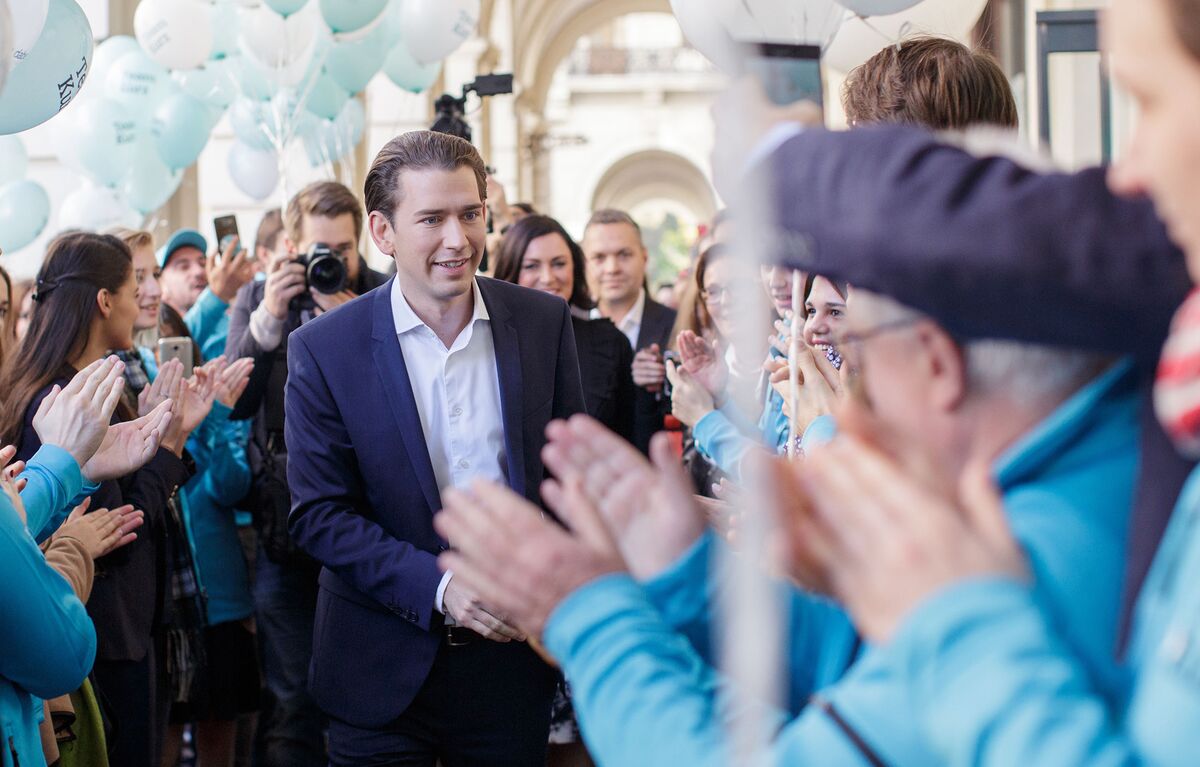
Austrians were voting Sunday in a national election that’s expected to give a boost to populism in Europe and could make conservative front-runner Sebastian Kurz the world’s youngest leader if anti-immigration nationalists support him.
Kurz, 31, called early parliamentary elections after months of bickering between his People’s Party and Chancellor Christian Kern. That could set the stage for a coalition with Heinz-Christian Strache’s populist Freedom Party, ending a decade of Social Democratic-led governments that revived the economy but struggled to reach voters concerned about immigration, national identity and maintaining the country’s prosperity.
While populist candidates were kept out of power this year in the Netherlands, France and Germany, the Freedom Party has been in government before. It was the People’s Party’s junior coalition partner between 2000 and 2005, and its candidate almost won the presidency, a mostly ceremonial post, in a run-off vote last year.
Polling stations close at 5 p. in Austria, followed quickly by projections by two pollsters based on precincts that closed earlier in the day, which account for about a third of ballots. Those results will probably have a margin of error of one to two percentage points, leaving enough uncertainty for close decisions to linger. If margins are close, it could take days to get clarity.
Almost 900,000 voters, 14 percent of the electorate, are eligible to cast ballots by mail or outside their precinct, which will be counted only on Monday and Thursday, respectively. If the margin between two parties is less than 1.2 percentage points, the race may remain too close to call for days, pollster Sora’s head Christoph Hofinger said.
Polls suggest the Social Democrats and the Freedom Party are fighting for second place with about a quarter of the votes each. As many as three smaller parties -- the Greens, the liberatarian Neos and a Green breakaway group -- may enter the parliament, or Nationalrat, in Vienna.
Read Why Austria May Elect the World’s Youngest Leader: QuickTake Q&A
While Kurz and Freedom’s Strache may shake up Austria’s cozy political order, they broadly agree in pledging business-friendly policies, notably to scrap corporate taxes on retained profits. They’ll also stay in the German-led camp favoring fiscal austerity in the euro area.
The swell of anxiety over immigration to Austria began building 2015, when almost 70,000 mostly-Muslim refugees sought asylum from war-torn countries such as Syria, Afghanistan and Iraq. Schools and hospitals in the nation of 8.7 million struggled to accommodate the newcomers, and disagreements over whether it was fair to give immigrants generous welfare support dominate the media.
As no party is likely to win a parliamentary majority on its own -- that hasn’t happened in Austria since the Bruno Kreisky era ended in the 1980s -- attention will then turn to coalition-building. According to tradition, President Alexander Van der Bellen would ask the head of the biggest party to try to form a government.


0 comments:
Post a Comment